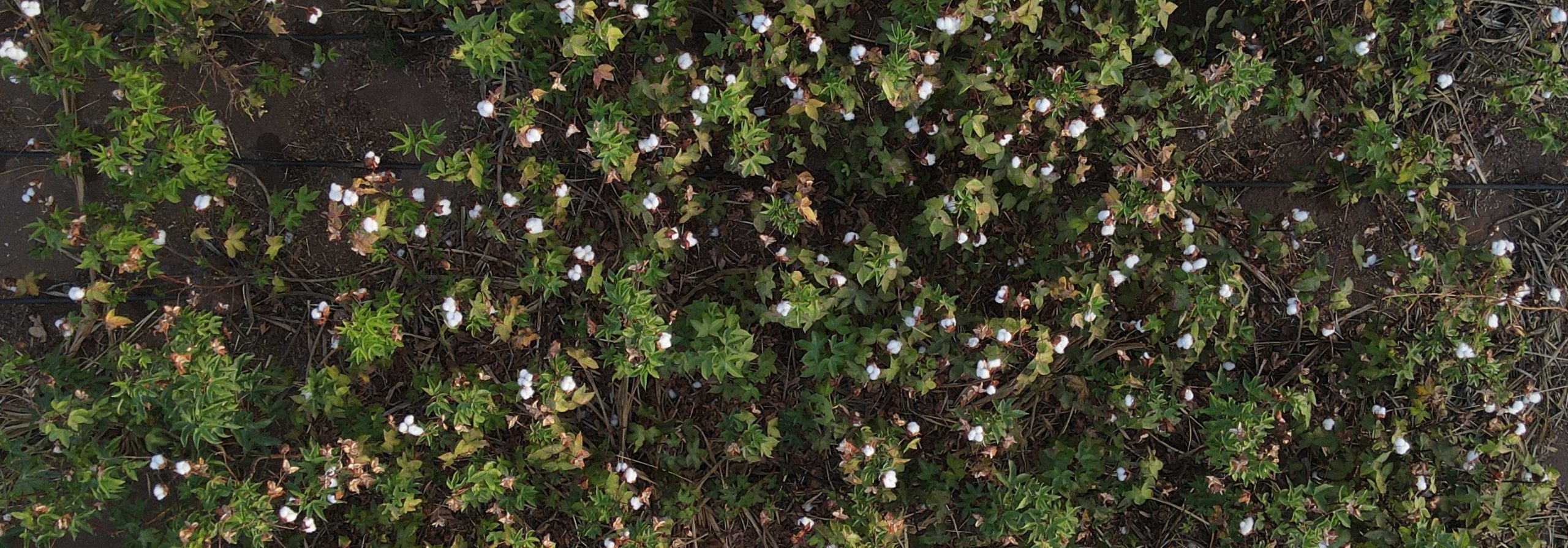AR.CV
Cotton and Resistance from Cape Verde – cultivation of thought and artistic practices for a history of the present
Research project | FCT/CEEC Individual
Artistic Practice, Politics and Social Engagement- Referência
- i2ADS-2021-AR.CV
- Período
- 01.01.2021 — 12.31.2025

How can thought and artistic practices around cotton, its historical power, and its stories of resistance, provoke different processes of social transformation?
AR.CV seeks to critically reflect on the intersection of the forces of art, ecology and social transformation in a context of environmental, cognitive, political, and cultural crises, focusing on cotton from the artistic project “NI – Neve Insular” in São Vicente, Cape Verde (CV), started in 2018.
Observing the history of the Portuguese colonization of the islands of CV, beginning in the 15th century, it is known that cotton was one of the bases of the slave and cultural system (Cabral, 2013, Torrão, 1991). The Cape Verdean cotton cloth is also known both for its commercial value as exchange for people enslaved in the colonial period (Carreira, 1968, Shabaka, 2013), and for the permanence of its charm and identity representation of the independent nation (Figueira, 1998, Nolasco, 2018), despite the disappearance of cultivation and ancestral knowledge related to cotton cloth production (Rainho, 2021a).
Therefore, the NI has been proposing a resistance to the objectification of the memories of the colonial cotton plantation; a visibility of the destruction of endemic species and popular knowledge; and an attention to the seisure of Cape Verdean cotton cloth by the strength of the tourism market (Nolasco, 2018). The project has been developed with the community, in the agricultural, educational and artistic domains, rescuing the cotton culture in CV, from the seed, its cultivation and spinning, to the weaving machine, in a slow action with several human and non-human (Rainho, 2021a).
It is important to reinforce that the project of economic globalization is inseparable from the plantation and the colony (Mbembe, 2014). In this context, plantations based on slavery forged a cycle of exploration of land, people and culture whose traces remain to this day as a global geopolitical dimension. It is from the cotton plant that AR.CV intends to carry out a critical reflection on its discursive, imagery and symbolic representations. The study of this plant, the ‘cloths’ and their historical power, will allow us to consider the resistance of thought and artistic practices from CV, in the era of the critical lens of the Plantationocene (Haraway, 2019, Myers 2020), and the way in which the arts can contribute to social transformation by mobilizing criticism on the historical power of cotton (Kesson-Arabindan, 2021, Kay, 2014).
In this project is necessary to go deeper into 4 main guidelines: i) Cotton in CV as a synecdoche of the ecological, political, cultural dimension of colonialism and capitalism; ii) The transforming potential of artistic thought and practice in its social implications, articulating art, education, ecology; iii) The archive as an official device of discourse and colonizing power, in tension with the vital archive among the memories of resistance in the present; iv) Critical Fabulation as a participated creation and investigation tool for other stories of the present.
Principal Investigator
Rita Rainho
Team
Gabriela Alves, José Carlos de Paiva, Miguel Costa
Resultados do projeto AR.CV
Publications
RAINHO, Rita (2022). Sementes De Algodão Enraizadas No Atlântico – A Nudez De Quem Se Procura Anti-Colonial. In Robson Xavier da Costa (Org.), (Re)existências. 30º encontro nacional da ANPAP [e-book] (pp. 157-180). Editora do CCTA. ISBN 978-65-5621-277-7.
RAINHO, Rita (2022). Cultivar algodão, despir a violência e o esquecimento. In C. Paoliello, C. Albino (Eds.), Design e Artesanato – 22 verbos para 24 autores (pp.93-120). UA Editora, Universidade de Aveiro. ISBN 978-972-789-817-6.
RAINHO, Rita (2022). Lutas dos saberes negros na educação artística: memória do algodão entre Brasil e Cabo Verde. BUALA.
RAINHO, Rita (2021). Lutas dos saberes negr@s na educação artística – memória do algodão entre Brasil e Cabo Verde. In Amanda Midori & Sidiney Peterson (Eds.), O ensino artístico que temos e o que queremos: posturas, histórias e experiências no Brasil e em Portugal (pp. 50-59). i2ADS edições. ISBN 978-989-9049-12-3.
RAINHO, Rita (2021). A insurgência de uma plantação de algodoeiro hoje: dos tempos de magia escrava à resistência cultural pós independência em Cabo Verde. In Edite Colares & José Carlos de Paiva (Eds.), Experiências em Educação Artística e Decolonialidade [e.book] (pp. 78-94). i2ADS. ISBN 978-989-9049-10-9.
Organization of events
neve insular 0,0003% – algodão e resistência (31.03-21.04.2023). [Exposição, seminário e oficinas]. Organização do coletivo Neve Insular e do projeto de investigação AR.CV do ID_CAI / i2ADS. Apresentações de Anna Arabindan-Kesson (Universidade de Princeton University), Gabriela Carvalho (i2ADS), José Paiva (i2ADS), Miguel Costa (i2ADS), Rita Rainho (i2ADS/Neve Insular), Rosilene Monteiro (UTAGA, artesã cabo-verdiana) e Vanessa Monteiro (Neve Insular). Apoio: Banco Cabo-verdiano de Negócios, Fundação Luso-Americana para o Desenvolvimento, Santander Universidades, CCCV, i2ADS. Parceiros: Associação Agropecuária do Calhau e Madeiral – AAPCM, Vanessa Monteiro Design – VMD, Oficina de Utopias – OU, Unidade de Transformação Agro-alimentar do Calhau – UTAGA e By Milocas. Centro Cultural de Cabo Verde CCCV, Lisboa, Portugal.
Distinction
‘Best of’ das artes visuais africana e afrodiaspórica em Portugal em 2023. Nomeação Artes Visuais & Cruzamento Disciplinar: Neve Insular, 0,0003% – Algodão e Resistência exposição & programa discursivo, Centro Cultural de Cabo Verde. [coletivo artístico Neve Insular e projeto semente AR.CV/i2ADS].